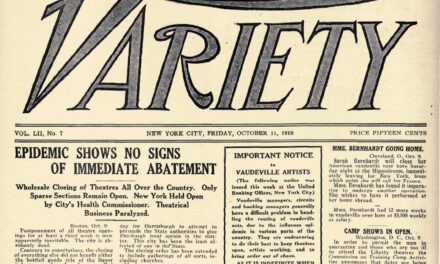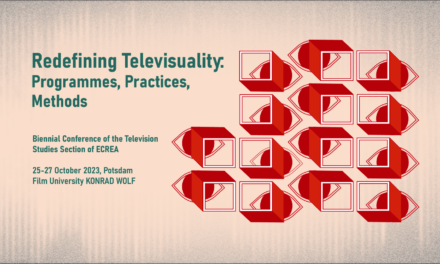I’ve been thinking about childish memories. Just as I now turn to obituaries before sports in my morning paper, I frequently think in childish terms.
‘Childish memories’ signifies something pejorative, as opposed to ‘childhood memories,’ right? It means being bellicose, prone to tantrums—selfish and controlling. But it is of course also and equally about childhood.
So what do I remember about television, and why might it interest you? I’ll start with the first question and end with the second, if you last that long.
I’m largely going to write about very provisional recollections/fantasies up to the age of 7, and how they relate to a contemporary young viewer’s TV life.
I first encountered television in the UK, then the US. I remember watching Andy Pandy
and Flower Pot Men (Bill & Ben to those in the know)
in Leicester and Captain Kangaroo in Manhattan.
The wicker basket that Andy and Teddy said goodbye from materialized in my life.
When my parents next moved, to Australia’s capital, there was neither television nor traffic lights; just suburbs. So I went without. On return to the UK, there it was. That provisional de-suburbanizing airlift to London meant discovering, inter alia, The Avengers, about which I wrote a book that draws on viewers’ memories along with archival, political-economic, and textual research.
The book has disappeared without a trace, but at the time was described in the New York Times Book Review as laden with ‘a decidedly hermeneutic lust’, while the Washington Post noted that I liked ‘50 cent words’.
In making my way through newspaper and magazine listings to satisfy that desire for hermeneutics and coin, I came to realize that my recollection of Avengers scheduling was flawed. Looking back on my time as a 7 year-old fan of espionage fiction, I had thought that the series was on the same night as Man From U.N.C.L.E. and possibly Danger Man, screened in succession.
Wrong, and an early lesson in how to treat fan studies that do not use a multiplicity of methods but rely on a touching faith in audience claims as the route to the true and the beautiful. But my misremembering indicated the power of genre to organize thoughts and scheduling—and to shift programing.
I recently spoke to an 8 year-old (possibly 9 by the time this column appears) about his past and present viewing habits.
Having been brought up on CBeebies, the old boy now watches Tiny Pop and Citv, channels for 7-11 year-olds, on TV proper (comme il faut). He remembers these things qua stations rather than in terms of particular series, unlike his on-demand experiences of watching Friends or Modern Family, which take place on computers and are defined by programs, not platforms.
Why is this of any interest? I guess my desire is to emphasize that memory is fatally flawed unless it is backed up by other empirical forms—something that eyewitness methods in law cases uncovered long ago. The National Academies’ Committee on Scientific Approaches to Understanding and Maximizing the Validity and Reliability of Eyewitness Identification in Law Enforcement and the Courts just can’t endorse such testimony wholeheartedly. Memory is partly invention and partly performance.
The latest psy-methods on memory use the wonderfully named Deese–Roediger–McDermott paradigm to induce false memories and incite people to buy things. TV is a favored object for these tendencies because it is alternately beguiling, compelling, dull, and insignificant in the eyes of its watchers. Television is also a site of propaganda, drawing on images of nationality, for instance, to create fealty.
So when I refer to my own memories, they are evidence. But they evidence rules about writing, norms of publishing, the study of memory, narcissism, and extrapolation.
The other reason for writing this is as a spur, because it might make readers embark on their own stay-cation of memory. There are some wonderful things to be had. Two of my favorites:
Belgian writer Herge, who created Tintin, was renowned for his Right Wing views. Somehow that didn’t worry me when I was about ten;
and
The networks didn’t have enough programming so during the day you’d turn on the TV and you’d see … a test pattern.
I remember staring longingly at the BBC’s color test pattern of a young girl my age, Carole Hersee, and wanting something, anything to happen —apart from Nina & Fredrik or horse/greyhound racing.

And TV is about boredom and longing more than anything else, isn’t it? At least that’s my memory of it.
Toby Miller is Emeritus Distinguished Professor at the University of California, Riverside, the Sir Walter Murdoch Professor of Cultural Policy Studies at Murdoch University, Profesor Invitado at the Universidad del Norte, Professor of Journalism, Media and Cultural Studies at Cardiff University/Prifysgol Caerdydd and of the Institute for Media & Creative Industries at Loughborough University in London. He can be contacted at tobym69@icloud.com and his adventures scrutinized at www.tobymiller.org.





